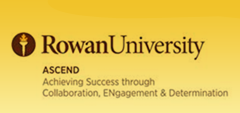Teaching to Their Cultural Strengths: Empowering First-Generation Students
Loading...
Start Date
3-2-2022 2:15 PM
End Date
3-2-2022 3:15 PM
Document Type
Presentation
Description
For first-generation students, many of whom persist at low rates, changes due to the pandemic including remote learning, reduced social opportunities, and lack of in-person academic support has increased the need for culturally responsive teaching practices (Gay, 2018). This year, first-generation students who experienced their junior and senior years of high school remotely may be especially challenged in navigating college course expectations. Supportive instruction that recognizes and adjusts to the cultural strengths of diverse students can make an important difference in academic achievement, motivation, and persistence for first-generation students (Chavez & Longerbeam, 2016; McCallen & Johnson, 2020). In this workshop, faculty, staff, and administrators will learn about cultural strengths pedagogy and teaching strategies that empower students. The presenters will share experiences from the past two years and ask participants to contribute their own observations of areas where first-generation students have struggled during the pandemic. Engage in a self-reflection activity regarding cultural strengths, and explore strategies for developing an understanding, empathetic, flexible class climate without lowering standards. Discuss specific practices such as scaffolding, multidimensional assessments, and shared responsibility for learning that utilize the cultural strengths of diverse students.
Teaching to Their Cultural Strengths: Empowering First-Generation Students
For first-generation students, many of whom persist at low rates, changes due to the pandemic including remote learning, reduced social opportunities, and lack of in-person academic support has increased the need for culturally responsive teaching practices (Gay, 2018). This year, first-generation students who experienced their junior and senior years of high school remotely may be especially challenged in navigating college course expectations. Supportive instruction that recognizes and adjusts to the cultural strengths of diverse students can make an important difference in academic achievement, motivation, and persistence for first-generation students (Chavez & Longerbeam, 2016; McCallen & Johnson, 2020). In this workshop, faculty, staff, and administrators will learn about cultural strengths pedagogy and teaching strategies that empower students. The presenters will share experiences from the past two years and ask participants to contribute their own observations of areas where first-generation students have struggled during the pandemic. Engage in a self-reflection activity regarding cultural strengths, and explore strategies for developing an understanding, empathetic, flexible class climate without lowering standards. Discuss specific practices such as scaffolding, multidimensional assessments, and shared responsibility for learning that utilize the cultural strengths of diverse students.


